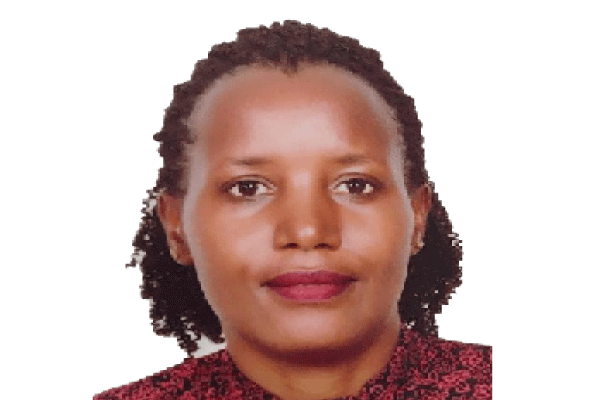Prime
Involve communities in peacebuilding

Harriet Mimi Uwineza
What you need to know:
- It is essential to involve people at the grassroots level in providing solutions to their challenges. Therefore, peace education should be made compulsory in schools in the region.
The Faculty of Humanities and Social Sciences at Victoria University recently launched an honorary lecture series on peace building in the Great Lakes Region. This initiative is aimed at promoting peace and stability in the region, and the university is taking a proactive role in contributing to the body of knowledge in this field.
The first lecture was delivered on Tuesday, April 4 by Brig Felix Kulaigye, spokesman of the Ugandan Peoples Defence Forces, who shared his experience and expertise in peacebuilding and conflict resolution.
The Great Lakes Region of Africa has been ravaged by conflict for decades. Ethnic and political tensions, coupled with economic and social factors, have led to a persistent cycle of violence that has affected millions of people. The United Nations has identified the region as one of the most volatile in the world, with ongoing conflicts in countries like Somalia, Eritrea, South Sudan, Sudan, the Democratic Republic of Congo, and Rwanda.
In this context, the launch of the honorary lecture series on peace building is a much-needed initiative that can help bring about positive change in the region. The series aims to provide a platform for experts and practitioners in the field of peacebuilding to share their knowledge and experiences with students, academics, and policymakers.
The first lecture in the series, given by Brig Felix Kulaigye was a resounding success. Brig Kulaigye, who has extensive experience in peacekeeping and peacebuilding, spoke about his experiences in the region and the challenges and opportunities for peacebuilding. He emphasised the importance of involving local communities in the process of building peace, and the need for sustained and coordinated efforts by all stakeholders.
The lecture was attended by students from various countries, including Somalia, Eritrea, South Sudan, Sudan, the Democratic Republic of Congo, and Rwanda. Many of them took the opportunity to thank the Uganda People’s Defence Forces, for their role in supporting peacebuilding efforts in their respective countries. The UPDF has been involved in various peacekeeping and peacebuilding initiatives in the region, and their contributions have been widely recognised.
The interactions between the students and Brig Kulaigye were insightful and thought-provoking. The students had the opportunity to learn from an experienced practitioner in the field of peacebuilding and to engage in meaningful discussions about the challenges and opportunities for peace in the region.
The Faculty of Humanities and Social Sciences at Victoria University is committed to promoting peace and stability in the Great Lakes Region. Through initiatives like the honorary lecture series on peacebuilding, the university is contributing to the body of knowledge in this field and providing students with experiential learning experiences that link them to expert practitioners in their areas of study.
However, the responsibility for peacebuilding does not lie solely with academics and practitioners. It is essential to involve people at the grassroots level in providing solutions to their challenges. Therefore, peace education should be made compulsory in schools in the region. This will help create a culture of peace and provide students with the knowledge and skills they need to become agents of change in their communities.
In conclusion, the launch of the honorary lecture series on peacebuilding in the Great Lakes Region is a welcome initiative that can contribute to positive change in the region. The engagement between students and Brig Kulaigye underscores the importance of involving local communities in the process of building peace, and the need for sustained and coordinated efforts by all stakeholders.
The Faculty of Humanities and Social Sciences at Victoria University should be commended for their proactive role in promoting peace and stability in the region.
However, there is a need for more concerted efforts, including making peace education compulsory in schools, to create a lasting culture of peace in the Great Lakes Region.
Dr Harriet Mimi Uwineza is a scholar in forced migration in the Great Lakes Region and the Dean of Faculty of Humanities and Social Sciences at Victoria University, Kampala.


